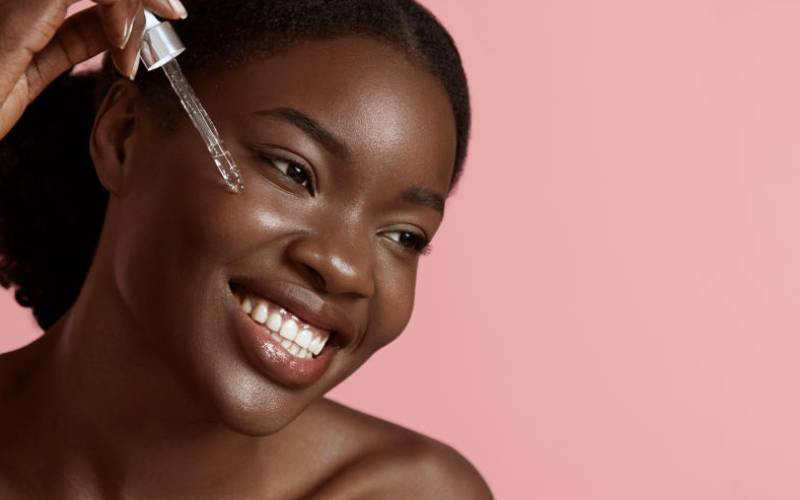
Aging is an inevitable part of life. From wrinkles, fine lines, varicose veins to grey hair, as we age we develop curiosities that change our youthful appearance into a mature one.
While no one expects to be forever young, the first signs of aging catch most people by surprise. It doesn’t help that there are many myths in circulation about the aging process. It can be difficult to tell what is fact and what is just a ploy to sell you more and more unnecessary beauty and skincare products.
To clear up any confusion and help you maintain a youthful glow for much longer, here are some common misconceptions and myths about aging skin that you should stop believing:
Acne goes away with ageAcne is often associated with puberty as hormones fluctuate. While this is partly true, acne is not always limited to out teenage years. With hormone fluctuations associated with the female reproductive health, some women experience hormonal acne well into adulthood and menopause.
The main culprit for this type of acne is the male hormone androgen. This hormone spurs sebum production in the oil glands, causing dead skin cells to become sickly and clog your pores. Clogged pores are likely to also have bacterial build-up that leads to irritation, rashes, and pimples. Breakouts tend to crop up again during menopause as the female hormone oestrogen and the male hormone androgen fall out of balance.
Adult acne can also be caused by makeup use, especially when you don’t pay proper attention to makeup removal. Acne has a genetic element – meaning that you are likely to suffer from adult acne if your parent had it too. If you suffer from adult acne, consult a dermatologist for proper care that might include topical creams and ointments, antibacterial and antifungal pills, and birth control pills.
Oily skin doesn’t wrinkleIt is true that oily skin does give you an advantage in the aging department. Oily skin tends to be thicker and less prone to dehydration, which definitely leads to less fine lines. However, according to dermatologists and aestheticians, having oily skin can result in deeper lines and larger pores.
In addition, oil production levels don’t have any effect on collagen levels and they also don’t block damage from sun damage. Therefore, while oily skin can help you stave off some wrinkles, it isn’t a free pass. You still need proper anti-aging skincare habits to maintain youthful sin.
Many women with oily skin tend to think that they can go without moisturiser and sunscreen. On the contrary, moisturiser will help lock in your natural moisture while sunscreen will protect your skin from sun damage. Regardless of your skin type, you should always have a proper skincare routine to prevent premature aging.

It is true that your parent’s health history says a lot about your own. But while how you age is influenced by your genes to some extent, environmental factors play the biggest role.
Ultra violet radiation from the sun is particularly to blame for premature lines and wrinkles. Chronic exposure to UV light is responsible for a type of aging known as photoaging, which is worsens the signs associated with chronological aging.
This explains why areas of the body associated with frequent sun exposure, such as face, arms, neck, and back of hands seem to age faster than other less-exposed areas.
Other environmental factors that influence your skin’s aging process include smoking, diet, alcohol consumption, and pollution.
Facial yoga fights wrinklesFacial yoga is a trend that has been around for a while. Its proponents claim that helps fight visible signs of skin aging such as fine lines and wrinkles. However, there is no authoritative study to prove the effectiveness of face yoga. In fact, some experts claim that it could worsen skin laxity!
But why do fans report improvement after practising facial yoga? Well, components of face yoga such as massage and application of essential oils explain these improvements.
These components help release muscle tension from the skin, boost blood circulation, and improve hydration. Incorporating facial massages into your serum or moisturiser application will, therefore, benefit you more than having an elaborate facial yoga routine.
Black skin doesn’t need sunscreenA common misconception is that sunscreen is only needed by people with light skin. You have probably come across the phrases such as “black don’t crack” and “black don’t burn.”
Sadly, even trained dermatologists and aestheticians seem to have bias when it comes to prescribing sunscreen to black patients. A 2014 study found that black people were prescribed sunscreen after hospital visits roughly nine times less than their white counterparts.
However, regardless of your skin colour or tone, sunscreen should be one of the most important steps in your skincare routine. While dark skin doesn’t get as easily sunburnt, black people can still get sunburns and are also susceptible to photoaging.
Dermatologists recommend applying sunscreen with at least SPF 30 for the best protection – SPFs higher than 30 don’t any significant additional protection from ultraviolet rays.
 The Standard Group Plc is a multi-media organization with investments in media
platforms spanning newspaper print
operations, television, radio broadcasting, digital and online services. The
Standard Group is recognized as a
leading multi-media house in Kenya with a key influence in matters of national
and international interest.
The Standard Group Plc is a multi-media organization with investments in media
platforms spanning newspaper print
operations, television, radio broadcasting, digital and online services. The
Standard Group is recognized as a
leading multi-media house in Kenya with a key influence in matters of national
and international interest.


